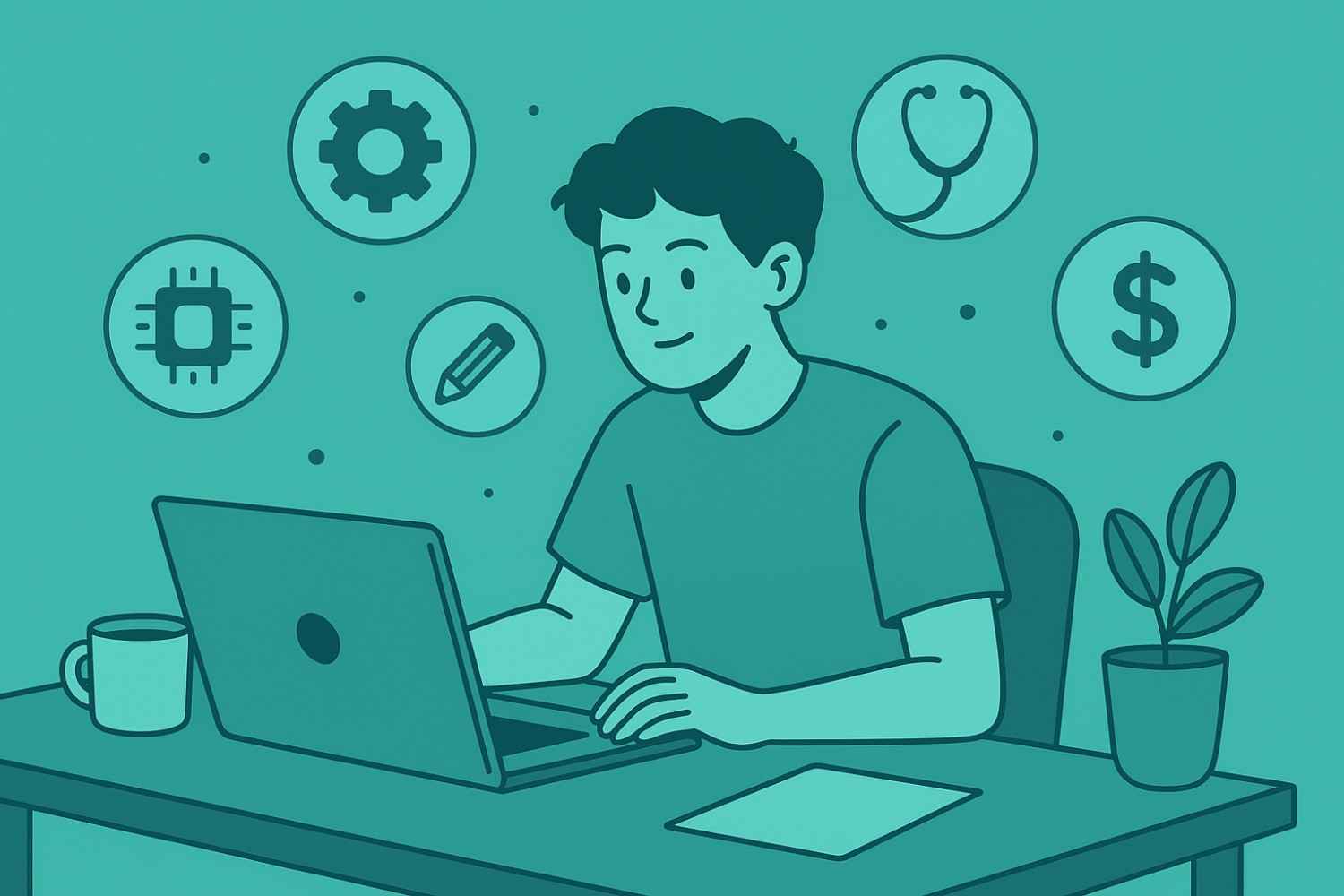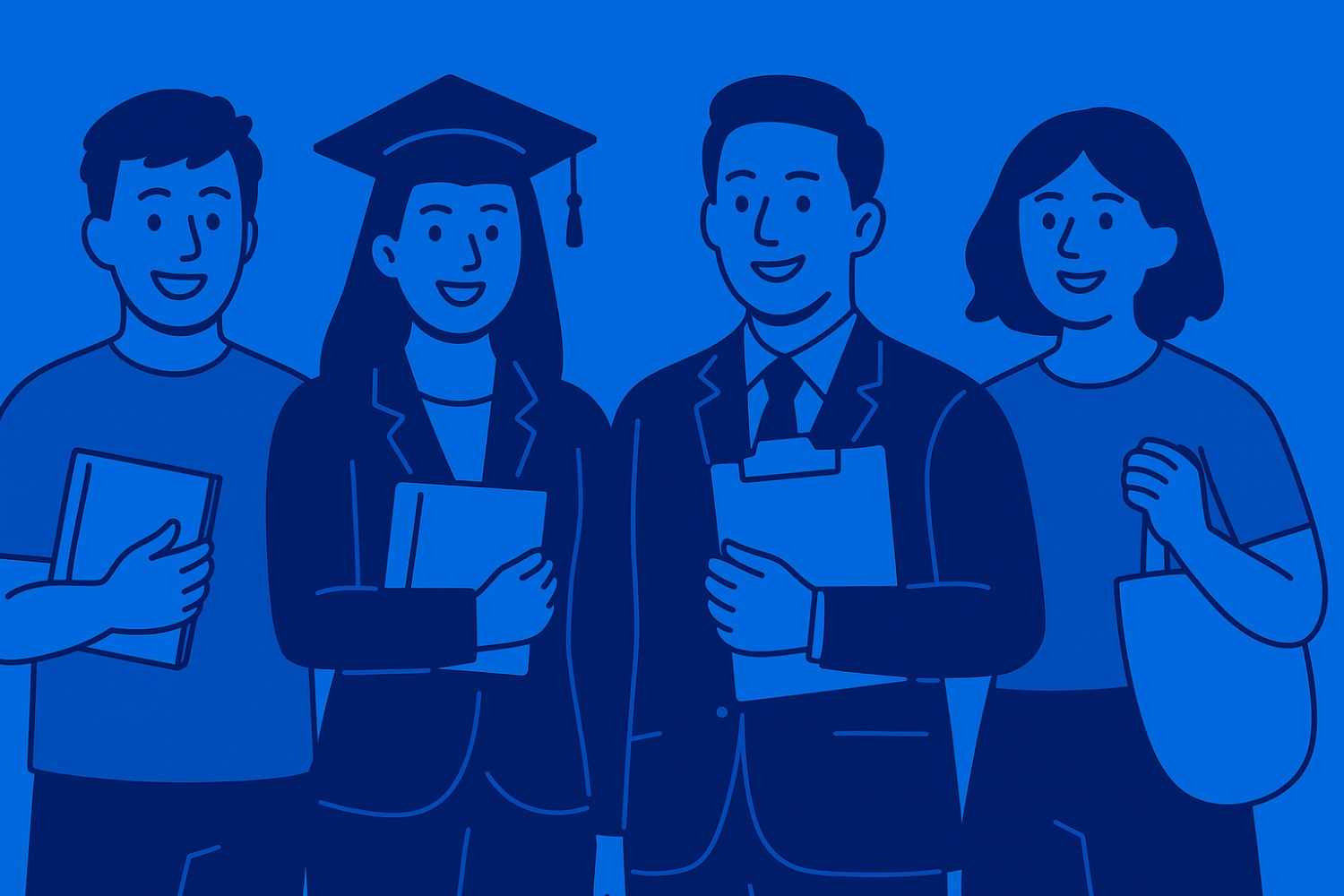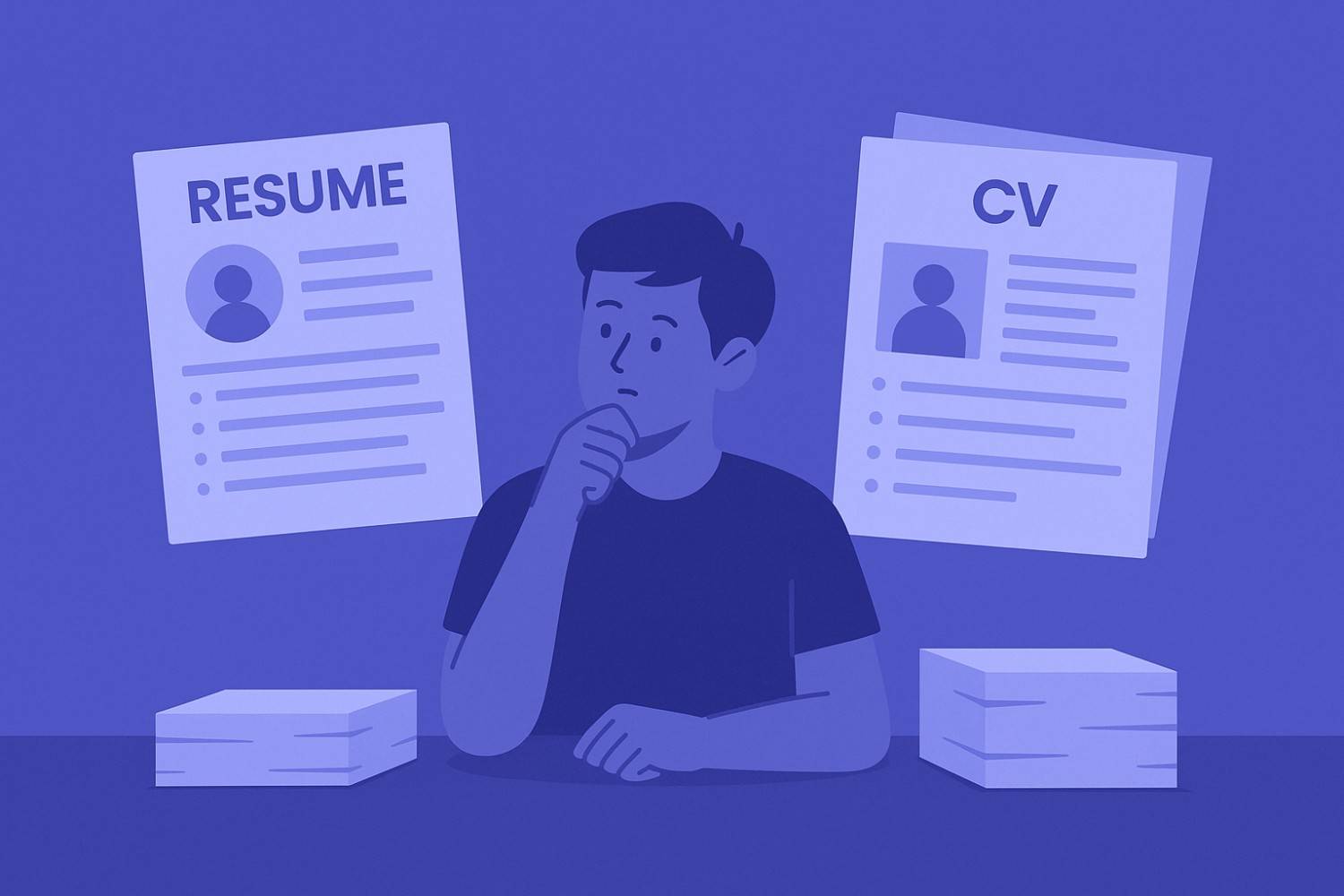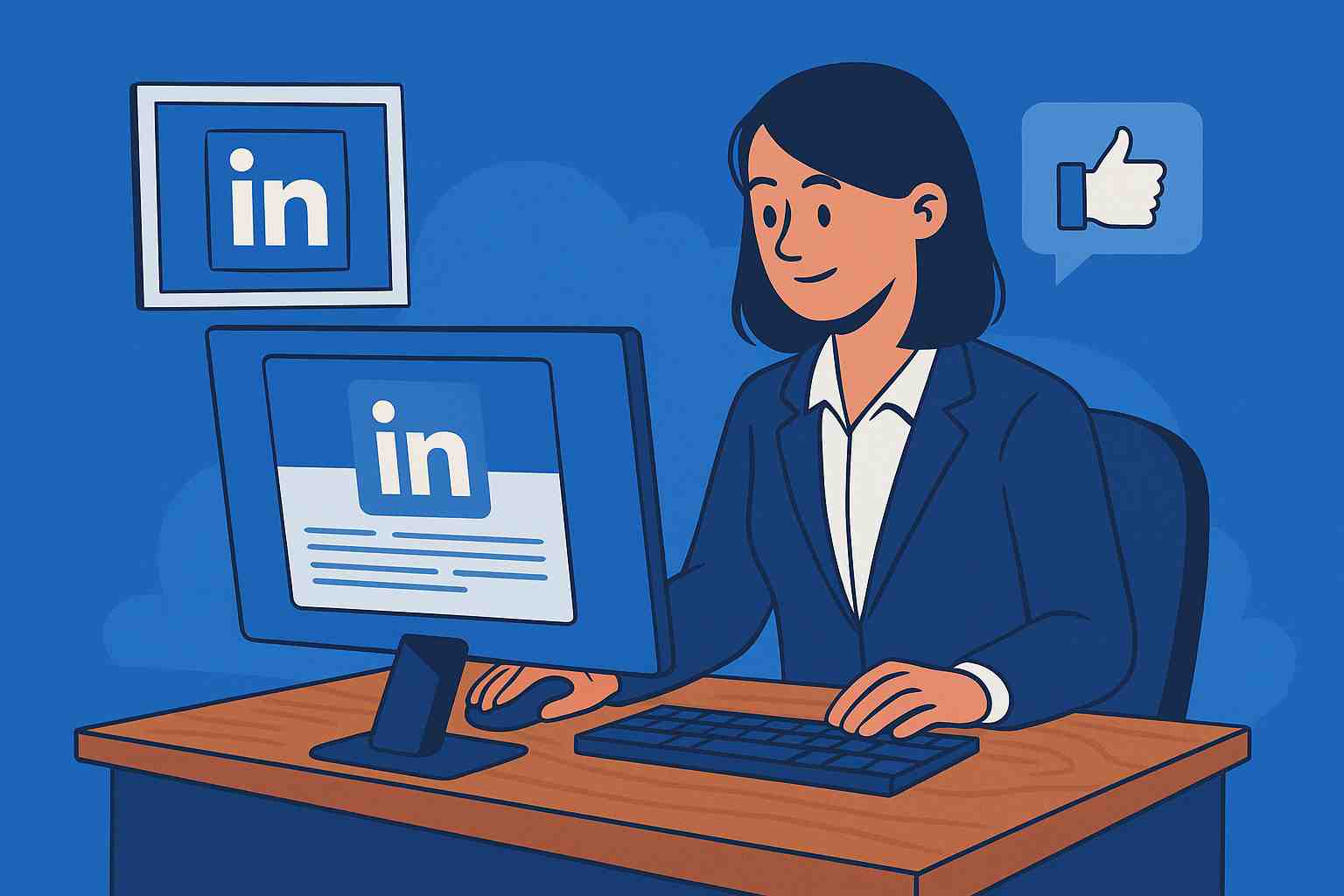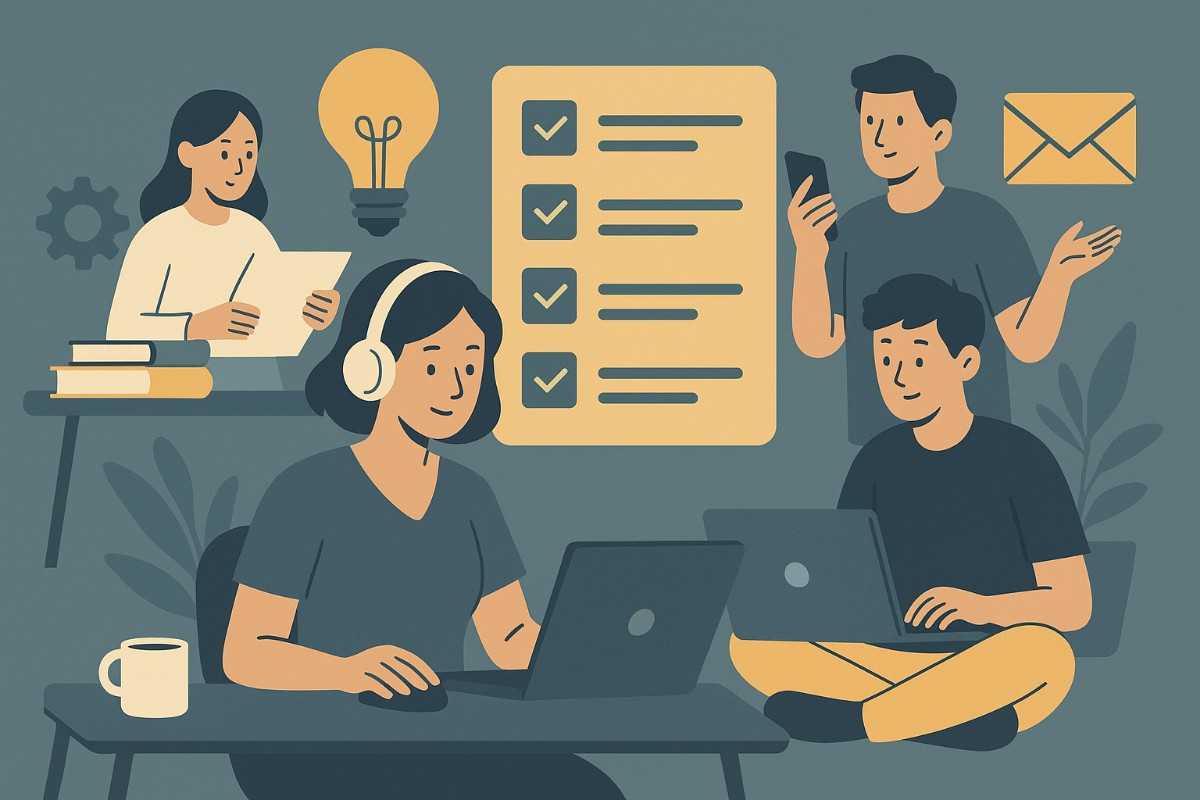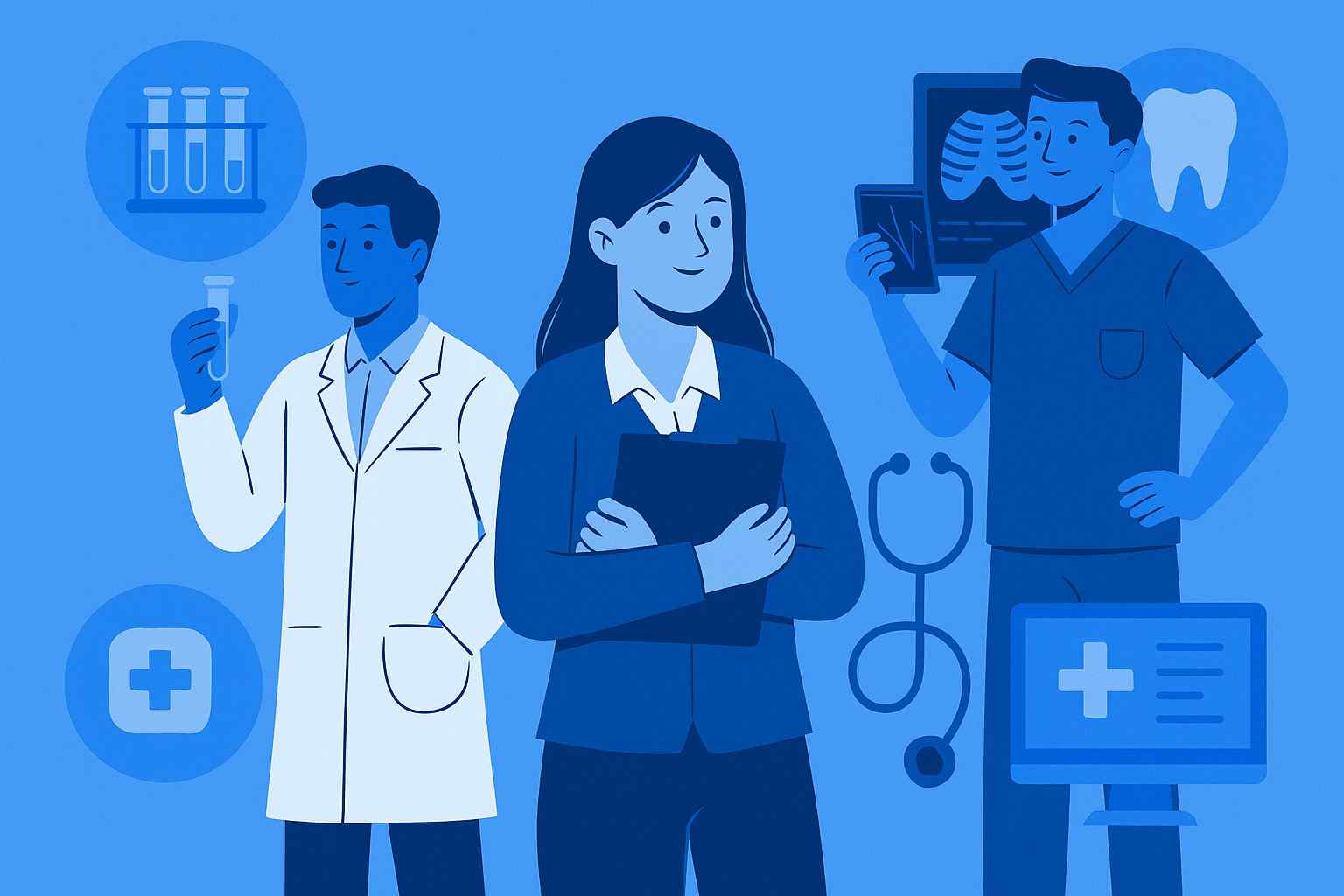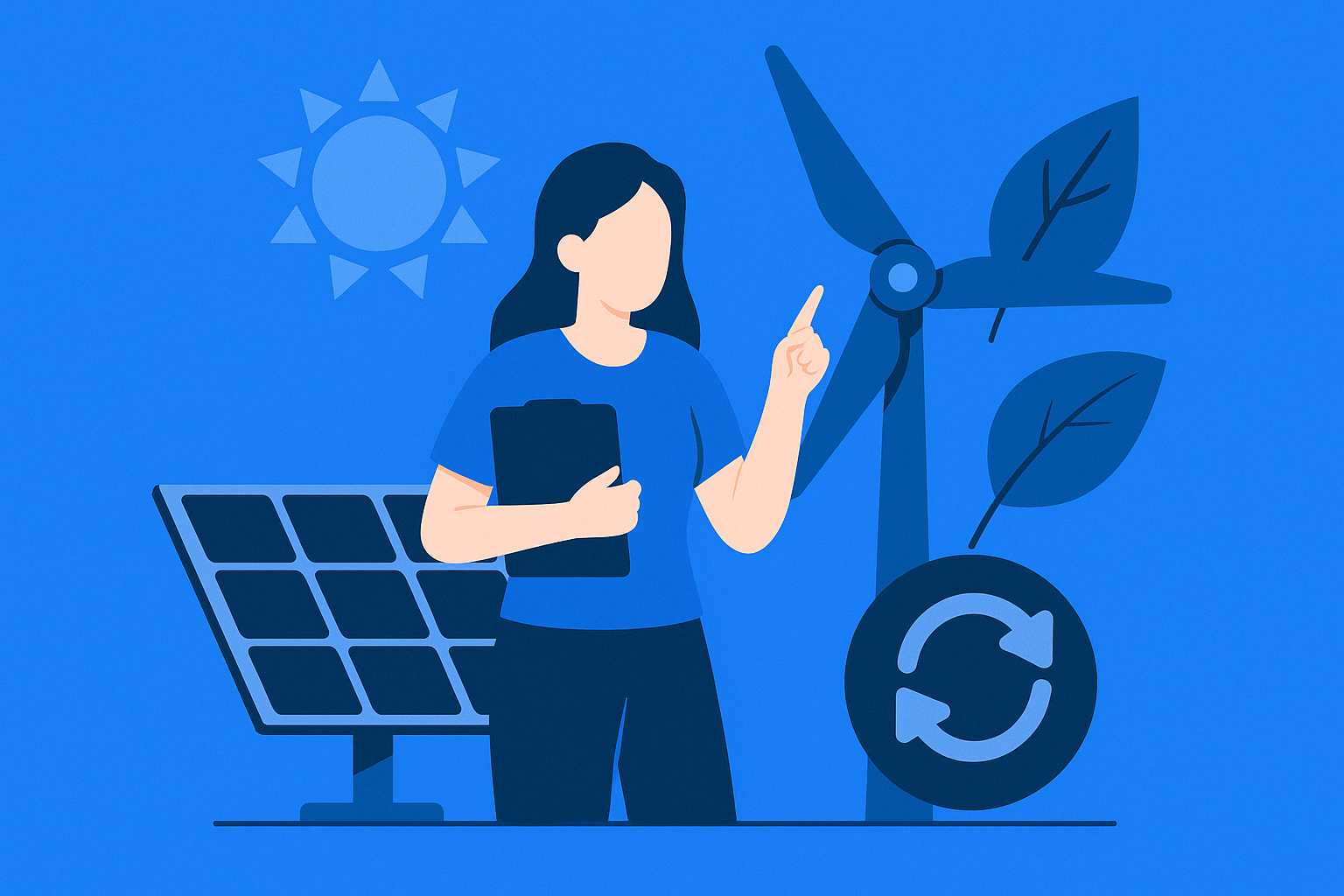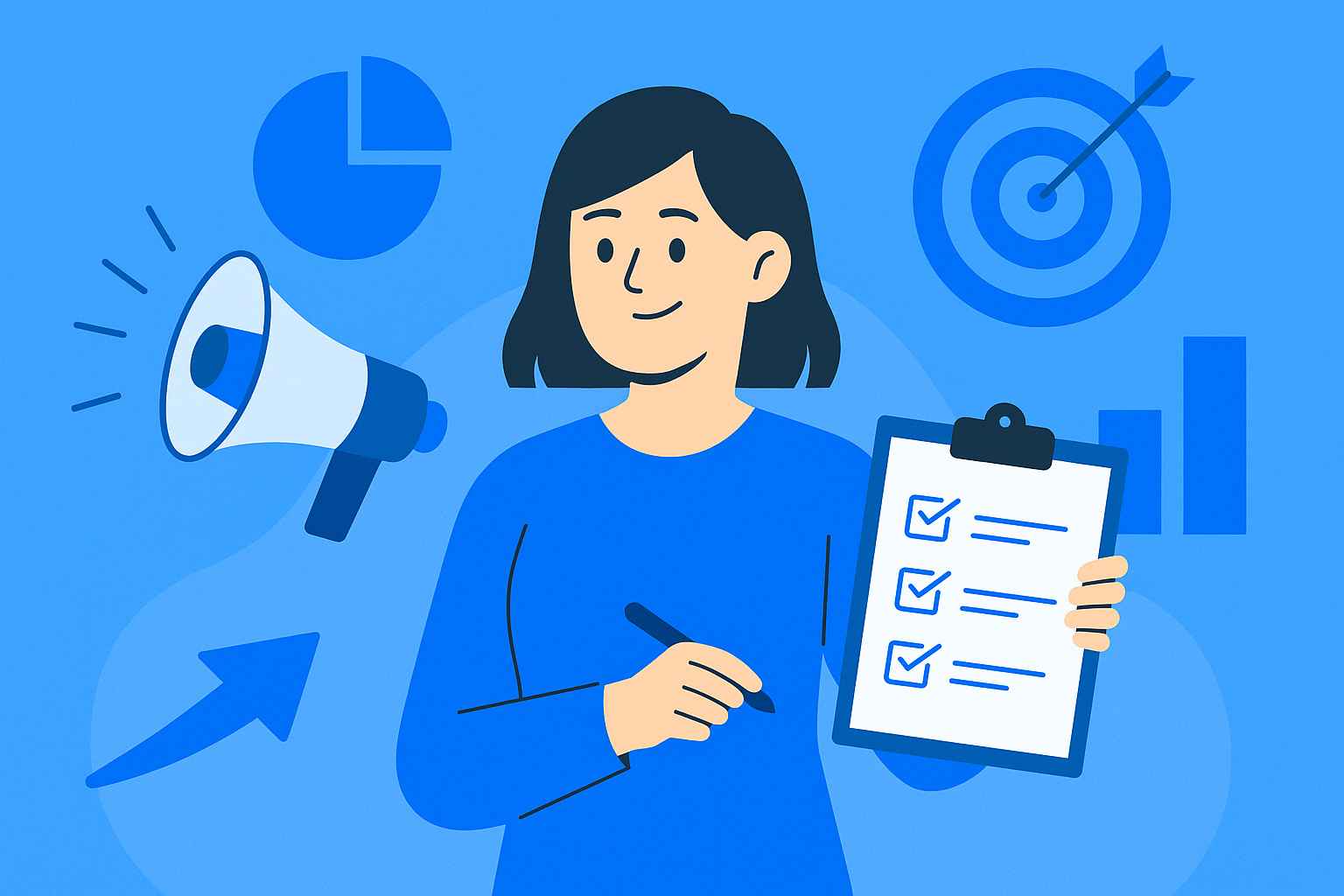
When you're just starting out in your career, it's thrilling and, at the same time, terrifying. You might know the theory, but interviews are a “transition” from training to work. Recruiters consider not only your demonstrable skills but also your attitude, problem-solving skills, communication style and cultural fit.
This article will guide you to prepare the most common interview questions asked to freshers and tell you why they are asked. You can easily crack them with some good and effective examples. In addition, we include bonus sections covering body language, dos and don’ts, and how to follow up to name a few.
1. HR Interview Questions and Answers
Q: Who are you?
Purpose: It is a way to test your communication skills and self-awareness.
Hint: Concentrate on education, accomplishments, strengths, and your career aspirations. Refrain from reading your resume verbatim.
Sample Answer:
Final year B.Tech CSE student from XYZ University is here. I have done internships in web development and exercised in coding competitions. I am looking for an entry-level development position where I can continue this passion for developing technology to solve real-world needs.
Q: Why would you like to work here?
Purpose: To gauge how well you’ve looked into the company.
Job Match: Discuss the culture, work, reputation, and values of the company.
Q: What are your strengths and weaknesses?
Answer Tip: Choose strengths with examples, and weaknesses that you're in progress of improving.
Sample Strength: “I'm a quick learner and can easily take on new technologies.”
Sample Weakness: “I am a bit of a perfectionist but I am working on balancing quality with efficiency.”
Q: Are you able to travel and work nights?
Be honest. If you say yes, mean it. If not, politely tell them why you can’t.
2. Technical Interview Questions by Stream
Here are technical questions you might encounter based on your stream:
For Computer Science/IT:
- Explain OOP concepts.
- What is the difference between SQL and NoSQL?
- Solve elementary DSA (Data Structures and Algorithms) problems.
- Write a function that reverses a string.
- What is Git, and what do you do with it?
For Electrical/Electronics:
- Explain Ohm’s Law.
- What is the difference between AC and DC?
- What is a transistor?
- What are logic gates?
For Mechanical:
- Describe the cycle of operation of a 4-stroke engine.
- What is thermodynamics?
- What are the various kinds of gears?
For Commerce:
- What is a balance sheet?
- Explain debit and credit.
- What are the recent developments in the GST?
For Arts & Humanities:
- Questions regarding communication skills, group work, and creativity.
- Situational questions dealing with people or events management.
3. Behavioral and Situational Questions
Q: Give an example when you worked as a part of a team.
Answer: Use the STAR method - Situation, Task, Action, Result.
Sample Answer:
“In college, I worked on a mobile app as a team project for my final year. I took care of UI/UX design and the rest handled backend. We managed via Trello and delivered a week before schedule.”
Q: What if you were late on delivering a project?
Hint: Exhibit accountability and being proactive.
Sample Answer:
“I’d immediately let my mentor know what happened and tell them what I’d done and suggest a new (reasonable) timeframe. I would just make sure it was a mistake I could learn from and not make again.”
4. Group Discussion Tips
- Listen before speaking, and listen actively.
- Begin or summarize if you’re able.
- Be polite, don’t interrupt.
- Add facts, examples, or data.
- Avoid dominating or being indecisive.
Sample Topics:
- Should we continue to work from home after the pandemic?
- Is social media damaging youth?
- Role of AI in future jobs
5. Star Pointers for First Interview Success
- Learn about the company and position.
- Practice routine questions out loud.
- Dress appropriately.
- Take hard copies of your resume, certificates, and ID.
- Be confident, but not overconfident.
- Don’t fake knowledge — admit if you don’t know something.
6. Mock Interview Practice Guide
A little practice can take the edge off and help you be more fluent.
How to Practice:
- Practice on platforms like Pramp, InterviewBuddy.
- Tape-record your answers.
- Rehearse with friends or mentors.
What to Focus On:
- Clarity of thought
- Consistency in answers
- Managing time for coding rounds
7. Body Language and Interview Etiquette
An interview is not only what you say, but how you say it.
Before the Interview:
- Arrive 10–15 minutes early
- Silence your phone
- Dress smartly — formals or smart casuals
- Bring two copies of your resume and ID
During the Interview:
- Greet with a firm handshake and smile (if in person)
- Maintain eye contact
- Sit upright; don’t slouch
- Avoid crossing arms or fidgeting
- Nod occasionally to show engagement
Virtual Interview Tips:
- Choose a quiet, well-lit background
- Test camera, mic, and Internet beforehand
- Look at the camera when speaking
- Keep a glass of water nearby
- Dress professionally
8. Following Up After the Interview
Following up shows professionalism and interest in the position.
When to Follow Up:
- Send a thank-you email within 24 hours
- If you don’t hear back by the deadline, follow up a week later
Thank-You Email Sample:
Subject: Thank You for the Interview
Dear [Interviewer's Name],
Thank you for interviewing me for the [Job Title] position at [Company Name]. I had a great conversation and got to learn more about your team and the cool things happening at [Company].
I am very excited about the chance to contribute and grow with your company. If you need anything else, please let me know.
Thanks again,
[Your Full Name]
[Phone Number]
[LinkedIn Profile (optional)]
9. More Real Interview Situations (and Answers)
Q: With so many competing work demands, how do you prioritize?
Answer:
"I rely on to-do lists and the Eisenhower matrix to allocate time depending on a task's urgency and importance. In college, I juggled several projects by allotting time for each based on deadlines or complexity.”
Q: What would you do if you and one of your teammates were not getting along?
Answer:
"I'm a fan of open communication. I would talk to the teammate calmly, try to understand their view, and share my perspective politely. If necessary, I’d consult with the mentor or supervisor.”
Q: Give an example of a time when you went above and beyond.
Answer:
"My most interesting experience was when a team member fell ill before one of our presentations during our internship. I pitched in to rewrite our slides, rehearsed the pitch, and took the meeting with the client alone. Our team received great feedback.”
10. Tools and Resources for Interview Preparation
- Pramp – Free mock interview platform
- InterviewBit – Coding interview prep
- LinkedIn Learning – Soft skills & tools training
- LeetCode / HackerRank – Code practice
- Glassdoor – Real interview question database
11. Final Thoughts
Your first job interview can be a nerve-racking experience, but one that takes you a step forward in your professional journey. With the right preparation, attitude, and approach, you can turn opportunities into offers.
- Be as persistent as possible.
- Learn from rejections.
- Keep improving your communication and technical skills.
Don’t strive to be perfect — strive to be ready and flexible. Interviews go both ways — it’s not just about companies choosing you, but also about you choosing the right job.
12. FAQs
Q: How many rounds of interviews are there for freshers?
A: Generally 2–4 rounds: aptitude test, technical round, HR round, and sometimes a group discussion or managerial round.
Q: Do I need to memorize answers?
A: Not necessarily. Understand the intent of the question. Think and speak naturally rather than reciting memorized answers.
Q: Can I ask the interviewer questions?
A: Absolutely. Ask about the team, tools, training, or next steps. It shows genuine interest.
Q: What should I avoid during an interview?
A: Avoid lying, being arrogant, bad-mouthing teachers or past employers, or using slang.
Q: Can I mention my hobbies in the interview?
A: Yes, especially if they reflect useful traits — e.g., team sports, blogging, open-source contributions.
Stay confident, stay curious, and keep preparing — your first job offer is on the way!




